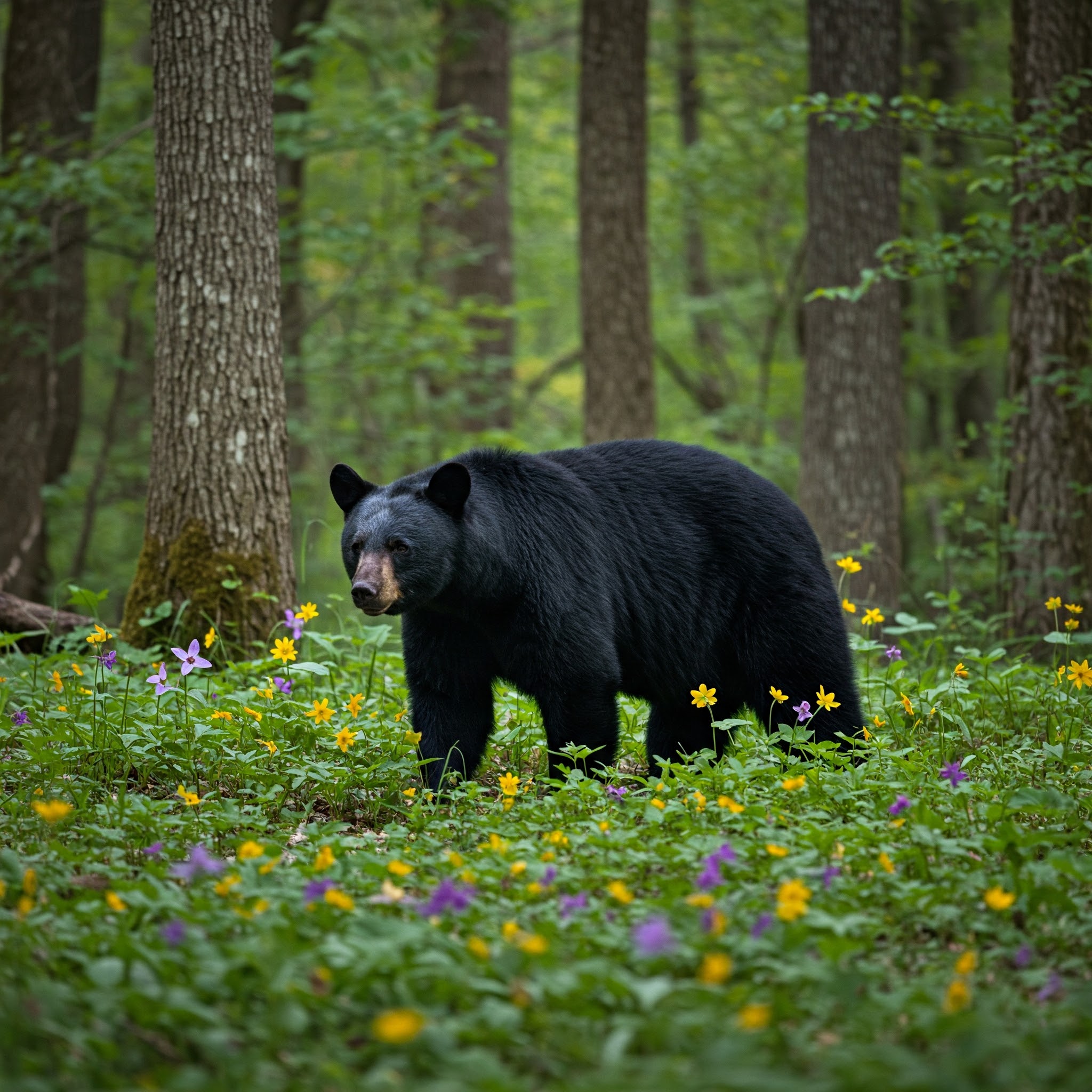
Sharing Your WNC Space with Bears This Spring
WNC -- Well, it’s happening. The mountains are greening up, the first waves of wildflowers are popping, and just like us, another well-known Western North Carolina local is stretching after a long winter nap: the black bear.
If you live here, you know the drill. If you're visiting, welcome to the neighborhood – and yes, we share it. This time of year, from late April into May, sightings definitely tick upward. Maybe you've seen one ambling across a back road, nosing around a neighbor's yard, or perhaps you've just heard the stories. It can be a thrill, for sure, but it’s also the perfect time for a friendly reminder about how to coexist safely.
Why Now? Hunger and Little Ones
After months tucked away in dens, bears are hungry. Really hungry. Their main mission right now is finding food to replenish reserves lost over winter. At the same time, female bears (sows) that gave birth during the winter are now emerging with tiny cubs in tow. These cubs are learning the ropes, sticking close to mom as she teaches them where to find food.
The Cub Conundrum: Look, Don't Touch (Seriously)
Let's just say it: bear cubs are incredibly cute. If you happen to see one (or two, or three!), your first instinct might be awe, maybe even concern if mom isn't immediately visible. But here’s the absolute most important thing to remember: Leave them alone.
Wildlife officials stress this every year, and for good reason. The mother bear is almost certainly nearby, even if you can't see her. She might be foraging just out of sight or might have momentarily stashed the cubs somewhere she felt was safe while she looks for food. Approaching, touching, or trying to "rescue" a cub is incredibly dangerous – not just because momma bear could react defensively, but because human interference can cause her to abandon her young.
It’s normal for sows to leave cubs for periods. Unless a cub appears obviously injured or you see it alone repeatedly over a long time from a safe distance, assume mom has things under control.
Is Your Yard Saying "Free Buffet"?
For bears, finding food is priority number one. Unfortunately, our yards often offer easy pickings. They have incredible noses and can smell food from over a mile away. Preventing problems usually comes down to some simple housekeeping:
Garbage Duty: This is the big one. Secure your trash cans. If you don't have a bear-resistant can, keep your trash inside a garage or shed until the morning of pickup. Don't put it out the night before.
Bird Feeders: Bears love birdseed – it's high in calories. Experts strongly recommend taking feeders down from April through November. If you must feed birds, hang feeders well away from your house and bring them in at night. Clean up spilled seed.
Grill Master Cleanup: That leftover barbecue scent? Delicious to bears, too. Burn off and clean your grill thoroughly after each use.
Pet Food: Fido might eat outside, but don't leave bowls with leftover food out, especially overnight.
Never, Ever Feed Bears: Intentionally feeding bears trains them to approach people and homes, which inevitably leads to problems for both bears and humans. It’s also illegal in North Carolina.
Hitting the Trails or Strolling Through Town?
Bear awareness isn't just for homeowners.
On Hikes: Keep dogs on a leash – a free-roaming dog can easily provoke a bear. Make noise occasionally (talk, clap) so bears know you're coming and aren't surprised. Be aware of your surroundings.
Around Town: Bears sometimes wander through neighborhoods or even town edges. If you encounter one, stay calm. Don't run (this can trigger a chase response). Back away slowly, speaking in a calm, firm voice. Give the bear plenty of space and an escape route.
When to Make the Call (and When Not To)
Seeing a bear simply walking through your yard or crossing the road usually isn't cause for alarm. They're just passing through. However, you should contact the NC Wildlife Resources Commission Helpline (866-318-2401) if:
A bear is posing an immediate threat to safety.
A bear is repeatedly damaging property or trying to enter homes/buildings (after you’ve already removed attractants).
You see a bear that appears obviously sick, injured, or orphaned (again, observe from a safe distance first).
You discover a den in a concerning spot, like directly under your deck or home (they can advise on coexisting until the bear leaves naturally).
Living with the Locals
Black bears are a key part of what makes Western North Carolina special. Seeing one can be a memorable experience. By understanding their behavior, removing easy food sources, and giving them plenty of space, we can keep both ourselves and our bear neighbors safe this spring and all year round.
Want more tips? Check out Bearwise.org – it’s packed with great information tailored to living and recreating in bear country. Stay aware, stay safe, and enjoy sharing this beautiful place.
WNCTimes
Image: WNCTimes


 How to resolve AdBlock issue?
How to resolve AdBlock issue? 